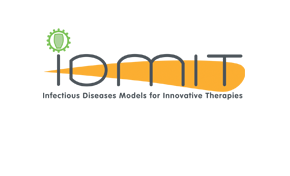Technologies
Animal science
POLICY ON USE OF ANIMALS IN IDMIT
IDMIT is a scientific and technological infrastructure where preclinical fundamental research and technological development towards prophylaxis and innovative therapies of infectious diseases are performed. IDMIT has unique expertise in the use of non-human primate (NHP) models of human infectious diseases.
The aims are:
– to better understand the host/pathogen relationships,
– to exploit acquired knowledge to favour the development of new drugs, innovative therapy strategies and next generation vaccines,
– to improve pre-existing vaccines or treatments,
– to validate and/or test the efficacy of drug-, therapeutic- or vaccine-candidates
– to speed-up and favour the path towards clinical trails.
However, in many cases, these important preclinical researches and prerequisite assays cannot be achieved other than by undertaking animal experiments.
IDMIT recognises the importance of the 3 Rs (Reduction, Refinement, Replacement) and accordingly limits the number of experimental animals required for its research programs. The research is of course conducted responsibly within the framework of French law on animal testing and in accordance with relevant European directives.
The IDMIT centre is also fostering research programs for refinement of the use of animals and reductions of the number of animals required for experimental medicine. Towards validation of alternatives to animal experiments, IDMIT develops new programs on assays standardization and harmonization, non-invasive methods (telemetry, in vivo imaging), animal training and in silico modelling, as well as programmes for improving the welfare of animals in captivity.
As shown previously (see « IDMIT Charts and organigrams » section) IDMIT has its own Ethics Committee. Its overall mission is to give his opinions on any experimental project implying vertebrate animals. It analyses the scientific objective of the animal experimentation phases of any project, to decree about the ethic acceptability of the animal model choice linked to the proposed experimental protocol and methodology.
IDMIT Ethics Committee is directly linked to Ethics Committee of the Life Science Division of the CEA (CETEA-CEA DSV IdF), created and registered (6th of June, 2011) by the French Ministry of Higher Education and Research. As such, IDMIT ethics committee follows the governance of the “Charte nationale portant sur l’expérimentation animale” according to the EU-Directive_2010_63 on the protection of animals used for scientific purposes. IDMIT Ethics Committee is composed of veterinary doctors, researcher and zoo-technician representatives and of external personalities. The Life science Division within the CEA and the newly created preclinical infrastructure IDMIT, are particularly aware of societal questioning on the use of animals for scientific purposes. For this reason, IDMIT is active in the communication processes towards public individuals or organizations, to explain what is done, why and how in the field of Human infectious diseases in relation with the use of animal models.
AAALAC ACCREDITATION
AAALAC International stands for the “Association for Assessment and Accreditation of Laboratory Animal Care.” AAALAC is a nonprofit organization that promotes the humane treatment of animals in science through voluntary accreditation and assessment programs. AAALAC only endorses the use of animals to advance medicine and science when there are no non-animal alternatives, and when it is done in an ethical and humane way. AAALAC works with institutions and researchers to serve as a bridge between progress and animal well-being. This is done through AAALAC’s voluntary accreditation process in which research programs demonstrate that they meet the minimum standards required by law, and are also going the extra step to achieve excellence in animal care and use. IDMIT is actively engaged in the obtaining of AAALAC accreditation.




